|
By: Cheyenne Taylor and Sandra K. Ziebold When discussing crime and prevention in domestic violence, we must discuss escalation. Escalation describes when abuse intensifies, either suddenly or gradually. It can also include perpetrating another form of abuse. Victims might stay with their abusers because they believe they can "handle" the abuse. They think things will improve and be how they used to be or blame themselves. When abuse escalates, victims might start realizing they do not have control and feel trapped in the relationship. Escalation also occurs when victims are considering leaving or have attempted to end the relationship. Reports show that 75% of all serious injuries in abusive relationships happen when the victim ends the relationship (National Domestic Violence Hotline). Identifying abuse is happening is the first step to getting help, but finding the courage to leave with limited self-confidence can be extremely challenging. We encourage victims to connect with supportive services to plan their exit, discuss the abuse to build their network, speak with professionals, and take necessary belongings when fleeing. Abuse thrives behind closed doors. Perpetrators of domestic violence rely on the silence of their victims to keep them trapped in the cycle of violence. As allies, we can all be there to listen and believe victims who come forward to report, seek help, or talk about their experiences. Our efforts here at Beacon of Hope Crisis Center are heavily focused on those most at risk of violent domestic violence victimization. In partnership with law enforcement, we are helping to reduce violence and the chance of felony assaults and domestic homicides by working to intervene early before domestic violence escalates. Providing victims with intervention and prevention services helps to reduce crime in our community. It can take approximately seven attempts before a victim permanently leaves an abusive partner. Many factors are at play, and the risk of death is highest when fleeing. The earlier we can intervene and provide mitigation options for all the barriers facing these victims before the violence escalates, the better for us all. The harm to pets, children, and primary victims is exponential, and with each passing day and traumatic incident, the damage compounds. It's more than the horrific long-term trauma, physical life-altering harm inflicted on many and the risk of death; it is also the shaping of the minds and behaviors of the silent witnesses to these crimes. Many children are at significant risk because they witness this model of unhealthy relationship behavior, and sadly, many then become victims or abusers. We must do all that we can to help break the cycle. By intervening early, we can help the primary and secondary victims by giving them the chance for a new, safe life free from the grip of domestic violence. When we can intervene early and get victims safe before domestic violence escalates, we are helping to reduce violence and the chance of felony assaults and domestic homicides. Beacon of Hope Crisis Center served 1,430 new victims of crime in 2022. While serving those new victims, we provided 35,580 case management services and 12,022 follow-ups to existing survivors seeking services. To better serve those in need in our community, we continue to enhance our services, intake process, and accessibility. Out of the 1,430 new victims that requested assistance, two hundred and three disclosed that they were homeless, thirty-four that they were in a same-sex relationship, one hundred and twenty-seven had a disability, sixty-eight had limited English, twenty-eight were undocumented, six were deaf, six were veterans, and forty-eight were pregnant. Six hundred and eight out of the one-thousand four-hundred and thirty cases had children living in the home, and two-hundred and three of the one-thousand four-hundred and thirty had DCS involvement where the child/children were the victims of domestic violence and/or sexual assault or witnessed the violence. Domestic violence is not just physical. It can be emotional, verbal, financial, psychological, sexual, spiritual, and social. Often, in the cycle of abuse, as abusive situations escalate, things do become physical. The prevalence of head trauma and events of strangulation are unfortunately high in this population. It makes screening for brain injury in the intake process when working with individuals who have experienced domestic violence crucial. Too frequently, this is not identified or not identified timely and prolongs the suffering of those who have sustained this trauma. As mentioned earlier, we continue to improve our intake process. This is very exciting because we are asking the right questions, and we need to ask them to intervene in a timely manner. This means that our enhanced intake process is identifying those who have sustained head and neck trauma and strangulation victimization faster. When a victim meets the criteria for critical medical imaging and potential brain injury assessment, we educate them about the medical emergency and refer them for critical medical services. This is a life-saving measure, and we are so proud of this innovative approach! In addition to our intervention and prevention services giving victims access to safety and services and helping to reduce the escalation of crime by abusers, it also can lead to reduced runs by law enforcement to 911 domestic calls. Every time an officer responds to a domestic, the risk of harm to the officers increases with each repeat call because violence escalates. Additionally, men who strangle women are the most dangerous men on the planet. Data shows that cop killers and mass murderers almost always have a history of strangling victims. According to Casey Gwinn, President and Co-Founder of Alliance for Hope International, “Domestic violence stranglers, usually after being trauma-exposed children, are the why of mass murders, and guns are the how." We must intervene as early as possible; we must continue to try to intervene as many times as needed. We must offer prevention services and provide access to everyone; that is critical to mitigate barriers. In 2022, our agency served 301 new victims who reported strangulation victimization in one year. We continue to see a high monthly average of those we serve reporting strangulation victimization. Our intervention and prevention services unequivocally are vital to crime reduction, and a collaborative multi-disciplinary approach is how we best serve those in need. One of the main ways we intervene and prevent further violence is by educating victims on escalation, dangers of strangulation, safety planning, and much more. The more knowledge a victim has in their pocket, the better they can anticipate their abuser's actions, what that means for their safety, and how to respond accordingly. Victims unaware of the dangers often experience multiple strangulation events and think they are OK. They might experience behavior changes, headaches, vision issues, and other symptoms due to the trauma to their head and neck. Victims often turn away the option of seeking immediate medical care due to a lack of education and knowledge about the risks they are facing. We are here to help victims learn, access help, and change the course of their lives. In many cases, we prevent felony assaults and domestic homicides.
By: Savannah Tipton This year's National Night Out events were a success, with lots of fun activities, experiences, and great company! It was great to see everyone relax and have fun. There was a variety of information and organizations present at each location. Some of the highlights included delicious food, snow cones, bounce houses, mini ponies, face paintings, caricatures, and so much more! Thank you to our law enforcement partners for organizing these wonderful opportunities for agencies, law enforcement, firefighters, and the community to come together.
It was lovely to see everyone present and enjoy each other's company on a beautiful summer day. We want to thank all officers for showing up to participate and creating new connections. We are so grateful that we had the opportunity to share information about our agency, our services, and show our support for our law enforcement partners. We had a fantastic time at National Night Out and cannot wait to attend again next year. -Beacon of Hope Crisis Center Team By: Savannah Tipton Sexual assault often results in no physical injuries to the victim, but this doesn’t make their experience any less traumatic. After an assault, victims may experience significant short-term and long-term effects.
Effects of Sexual Assault:
Sexual assault is often perpetrated by someone the victim knows (acquaintance, friend, family, etc.). The majority of assaults occur at or near a victim’s home (RAINN). Many of us were taught about “stranger danger” in the past and some people may still believe that no one they know “could do something like that.” Unfortunately, we do not get to live in a world free from danger. However, together we can raise our voices to make a change. Start by believing survivors. If someone discloses they have been sexually assaulted, listen and believe them. If they disclose shortly after an assault, encourage them to get an exam done at the hospital. Sexual assault exams are done for free in Indiana and an experienced SANE nurse (Sexual Assault Nurse Examiner) can collect evidence that may not be available later on. This is also an opportunity for survivors to get medical care, testing, and ongoing support. Referring survivors to community resources is another way to help and you can encourage them to speak with a victim advocate. Victim advocates offer free support, education, and community referrals. Advocates can also answer questions about protective orders and reporting to law enforcement. Want to get more involved? Get out in the community and start volunteering! There are a variety of volunteer opportunities to help survivors near you. Volunteers opportunities generally include fundraising, events, volunteer advocacy, and more. Visit the career tab to learn more about volunteer and internship opportunities at Beacon of Hope Crisis Center. Finally, show survivors you stand with them as an ally by sharing resources, statistics, and other information from services providers. The simple act of sharing a post has the potential to reach someone who may need help. Your voice has power, use it to support survivors. #AllyToSurvivors If you or someone you know is a victim or survivor in need of services, please contact our confidential crisis line at 317-731-6140. Advocates are a confidential source of support available to help survivors. By: Savannah Tipton Society has typically associated feelings of grief to the death of a loved on. We can understand that someone may have difficulty processing the death despite the circumstance (illness, accidents, etc.). When we expand the definition of grief to include other things that are lost, society gives less acknowledgement or validation. Survivors of domestic violence may experience grief over lost self-esteem, loss of their home and the life they knew, or even the future they once planned for. They may experience this grief during and after the relationship has ended. There are many reasons survivors do not disclose abuse (humiliation, fear, guilt, shame) and this can further complicate feelings of grief. Survivors need access to support as they start their healing journey. Some may find support from friends and family while others turn to professionals.
To better understand the connection between grief and domestic violence, we must first look to all that a survivor of domestic violence may lose or leave behind after being victimized (see below). Together we can become more educated and give survivors validation to grieve or mourn all that they have lost. Advocates are available to validate feelings of grief and connect clients to supportive services and free counseling. Confidential Crisis Line: (317) 731-6140 Losses Which Are Grieved
By Kristin Scriven Introducing Tiffany Wilson, Beacon of Hope’s Director of Victim Advocacy! Tiffany has been with Beacon of Hope for a year and a half and truly loves this organization. Her favorite part about working here is the atmosphere and the people; she loves working in such a supportive environment with coworkers who all have the same passion for helping and empowering women.
Tiffany has worked in victim advocacy for the past nine years and has a degree in Criminal Justice from Indiana University. As Director of Victim Advocacy, Tiffany leads the team of advocates and works directly with our CEO/Executive Director on grant writing. She is also responsible for overseeing our informational database of client information for follow ups and data collection. Her favorite service that Beacon of Hope offers is of course our criminal justice team! She loves being able to inform victims of their rights while working with them each step of the way. In such a scary and unsure time, having someone who can provide support and clarity is monumental and Tiffany loves that she can help in that way. This past Spring Tiffany was honored with winning the “Baker One Outstanding Victim Advocate” award! This award is given to an outstanding advocate that demonstrates a consistent excellent effort in the field of domestic violence and sexual assault. Tiffany is a hard worker and a valued member of our team. Thanks for all your hard work, Tiffany! You make us proud! By Kristin Scriven Meet Rosa Ponce, Beacon of Hope’s Senior Victim Advocate! Rosa graduated in May of 2017 from Ball State University with a dual degree in Criminal Justice and Criminology and a minor in Social Work.
As Senior Victim Advocate, Rosa oversees the criminal justice team and works directly to support the victims. When asked why she loves working at Beacon of Hope, Rosa said, “I love what we stand for and what we do; I’m passionate about working with victims of domestic violence and sexual assault. I love that we get to help spread awareness about such important issues.” Rosa’s favorite service that Beacon of Hope offers is court accompaniment. She loves being a pillar of support for the victim in their time of need. Her support helps victims feel a sense of safety and security during a scary time. In her spare time, Rosa loves hiking and reading. Currently, her favorite book is Orphan Train by Christina Baker Cline. A fun fact is that Rosa is initially from California and moved to Indiana when she was six years old! When she’s not working, you can find Rosa at Klipsch Music Center attending country concerts. We love having you as part of the team, Rosa! By Caleb Bailey | Beacon of Hope Crisis Center Intern “My victims use the hotlines daily” – Detective Hinshaw of Lawrence City Police Founded in 2007, Beacon of Hope Crisis Center opened its doors in 2009 and has remained committed ever since. The immense change that Beacon of Hope brings to the community has been expressed by many–including the police department. Tiffany Wilson, Beacon of Hope Crisis Center staff member, interviewed Stacy Hinshaw, Detective of the Lawrence City Police Department, on how different her job is when Beacon of Hope Crisis Center is involved. “A huge Impact”, said Hinshaw. “The resources of Beacon of Hope have helped our victims at their most vulnerable times”.
The collaboration with the Lawrence City Police Department has exhibited positive outcomes. When asked about the successes, Detective Hinshaw had “several victims pursue protective orders and charges filed against abusers”. As a result of teamwork, victims were able to “find the strength to leave their abusers and start a new healthy life”. “My victims use the hotline daily”, Hinshaw added. This is just one of the reasons why Beacon of Hope Crisis Center is known for collaborating with all organizations that help prevent and protect victims of domestic violence. By Sandra K. Ziebold  We had the pleasure of attending the Julian Center Judge’s Luncheon on Wednesday, April 12th. During the luncheon the Domestic Violence Network presented our Senior Victim Advocate, Tiffany Wilson, with the Baker One Outstanding Advocate award! Tiffany leads our Criminal Justice Advocacy Team serving victims of crime in partnership with our 5 police department partners. This award is given out to an outstanding advocate that shows consistent exemplary effort in the field of domestic violence or sexual assault advocacy. The advocate has to have demonstrated advocacy efforts working with generally high-risk or unique domestic violence/sexual assault situations. This award recipient must consistently demonstrate the Baker One Project tenets of offender accountability, homicide prevention and victim safety. It is such an honor to gather with so many wonderful officers, departments, judge's, prosecutors, servant focused individuals and agencies that collaborate and serve domestic violence and sexual assault victims. Victims, survivors and conquerors as the special guest speaker, Officer Ethan Roark, likes to say and referenced in his speech. Officer Roark had wise and wonderful words to share with those in attendance. He is someone that we work with all the time as the partner agency providing advocacy for Southport Police Department and we know first hand his level of passion for making a positive difference in the lives of others. Great luncheon, wonderful hosts and I couldn't be more proud of Tiffany! She is very deserving of this award! By Sandra K. Ziebold Our Criminal Justice Program consists of partnerships with the police departments of Southport, Lawrence, Beech Grove, and Speedway police departments. Beacon of Hope victim advocates work with law enforcement to follow up on purple sheet cases and when needed will arrive in partnership ready to assist victims during domestic violence calls. Our advocates also provide emotional advocacy and assistance to those in crisis from sexual assault. The advocates provide a lot of information on victimization, crime prevention, safety planning and information on the criminal justice process and on the legal rights and protections of victims. This program is breaking the cycle of abuse and educates victims about all of the resources available to assist them with leaving the situation and achieving freedom from the grip of domestic violence.
|
About this blog
This blog is about our domestic and sexual violence crisis center, Beacon of Hope. We hope you find it full of helpful information, motivation, creativity, serious facts and positivity. We hope that it will help you know what is happening in our center, in our community and with our events. We hope you follow our blog in support of our organization and our mission. Archives
October 2024
Categories
All
|
|
CAREER opportunities © 2024 Beacon of Hope Crisis Center Privacy Policy Accessibility Statement Training Portal Login |

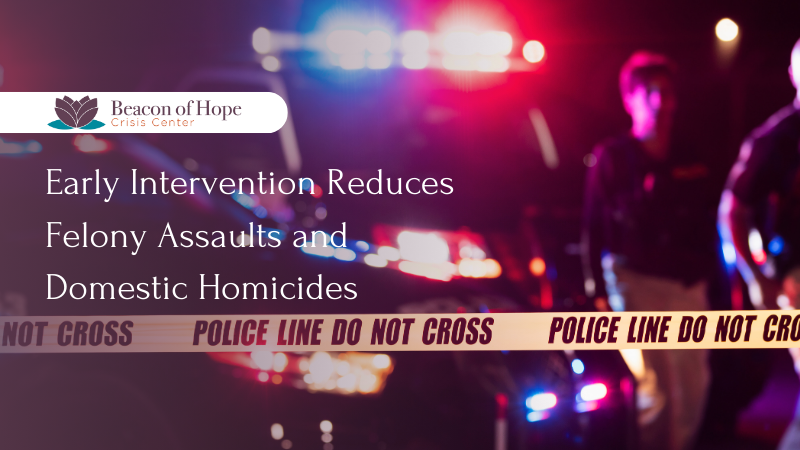
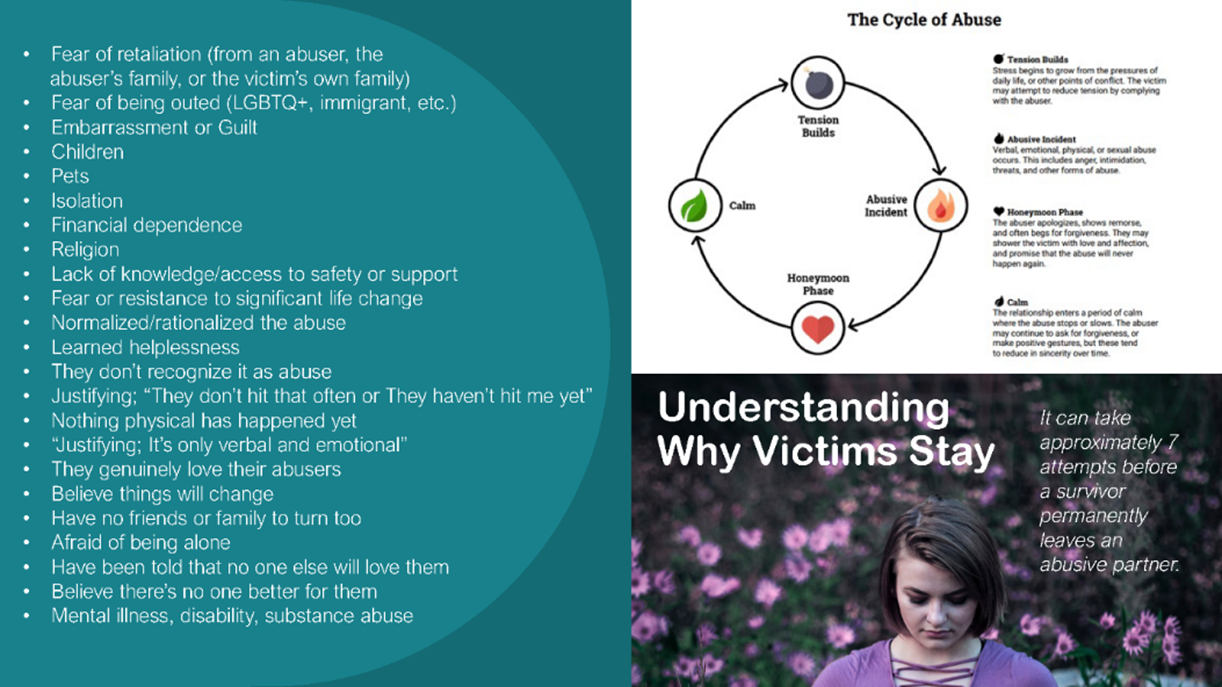
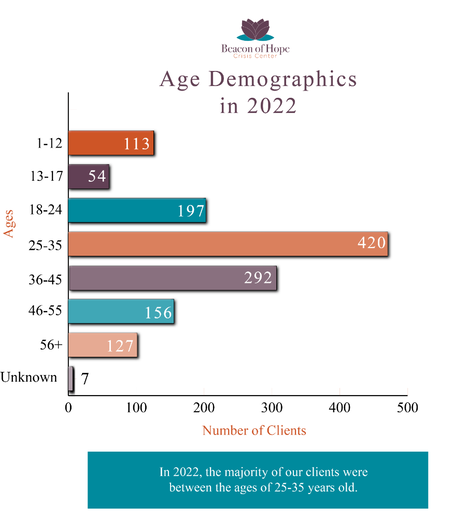
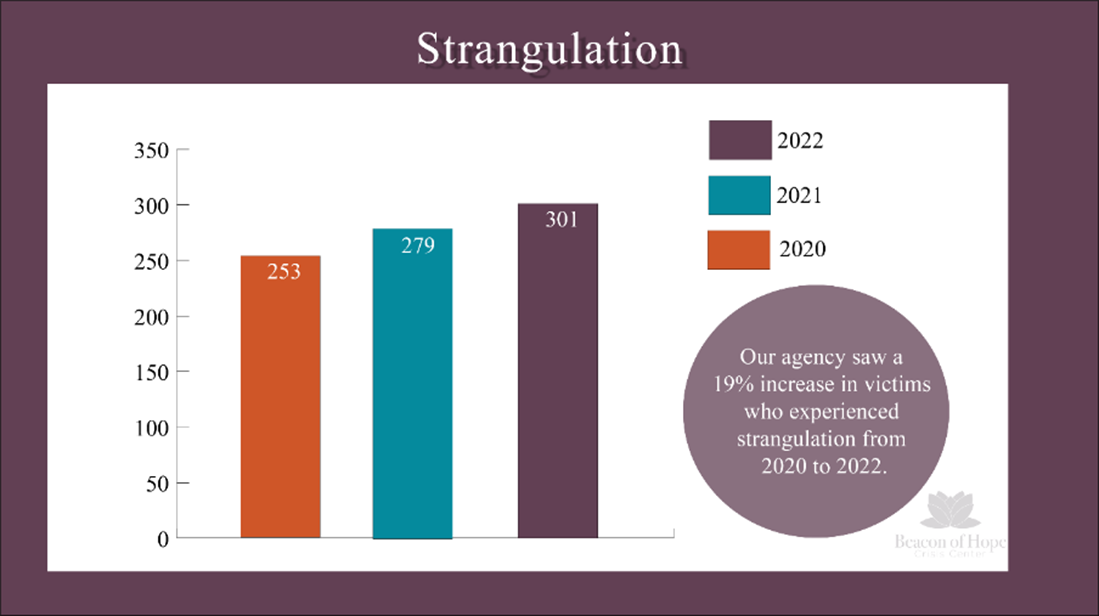
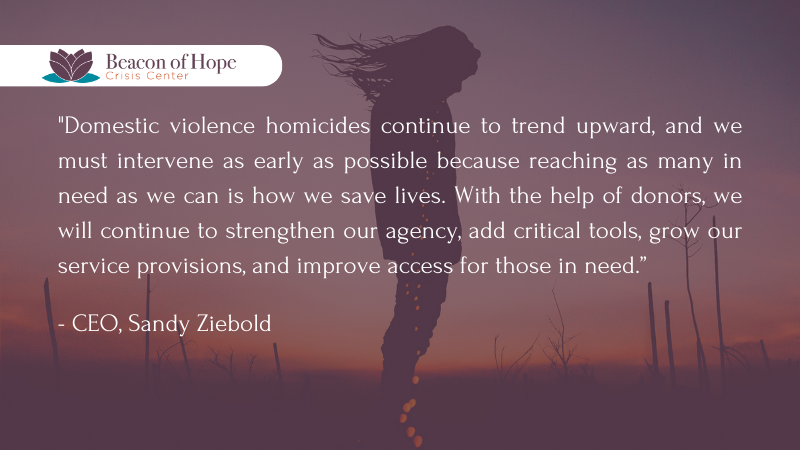
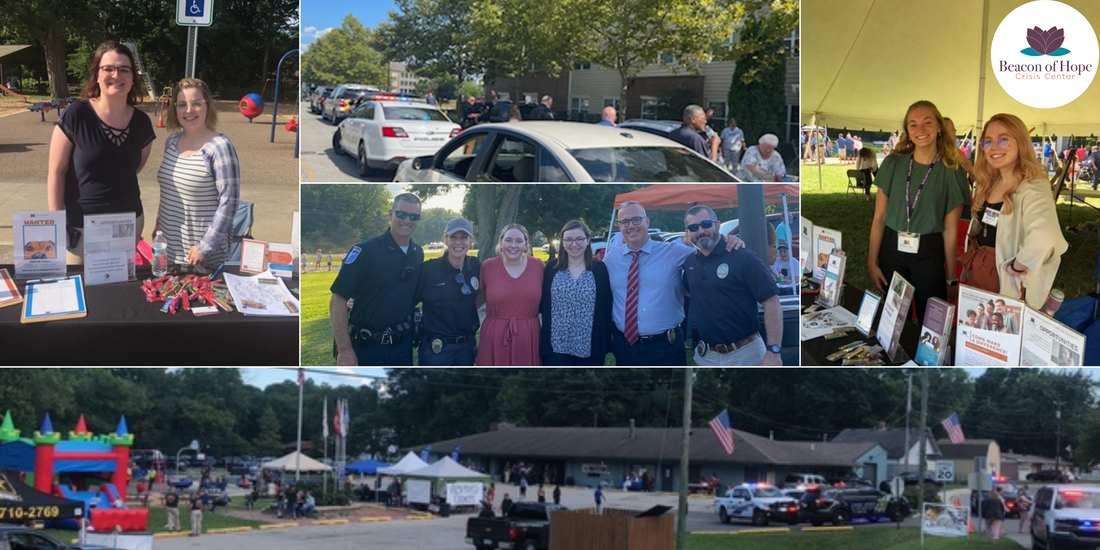

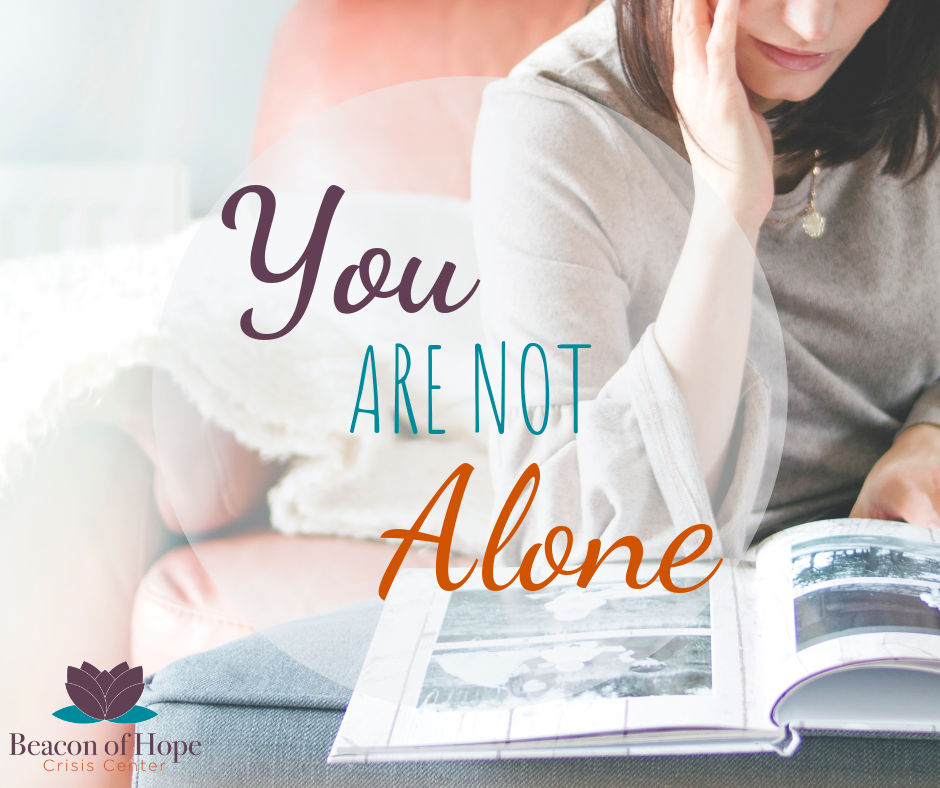





 RSS Feed
RSS Feed